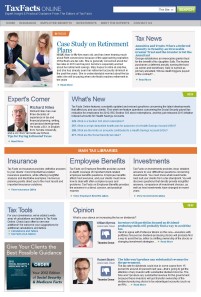In Tax Tip 54, the IRS alerted taxpayers that if their income exceeds certain limits, then they may be liable for an Additional Medicare Tax. 6 Tax Tips Regarding the Additional Medicare Tax are:
1. The Additional Medicare Tax is 0.9%. It applies to the amount of a taxpayer's wages, self-employment income and railroad retirement (RRTA) compensation that is more than a "threshold" amount. The threshold amount that applies is based on your filing status. If a taxpayer is married and file a joint return, then the taxpayer must combine both spouse’s wages, compensation, or self-employment income to determine if that income exceeds the “married filing jointly” threshold.
2. The threshold amounts are:
Filing Status Threshold Amount
Married filing jointly $250,000
Married filing separately $125,000
Single $200,000
Head of household $200,000
Qualifying widow(er) with dependent child $200,000
Married filing jointly $250,000
Married filing separately $125,000
Single $200,000
Head of household $200,000
Qualifying widow(er) with dependent child $200,000
3. A taxpayer must combine all wages and all self-employment income to determine if the total income exceeds the threshold. A taxpayer may not consider a loss from self-employment when calculating this additional medicare tax. The taxpayer must compare RRTA compensation separately to the threshold. See the instructions for Form 8959, Additional Medicare Tax, for examples.
4. Employers must withhold this tax from wages or compensation when paying a taxpayer more than $200,000 in a calendar year, without regard to filing status. The employer does not combine the wages for married couples to determine whether to withhold Additional Medicare Tax.
5. A taxpayer may owe more tax than the amount withheld, depending on the filing status and other income. In that case, the taxpayer must make estimated tax payments /or request additional income tax withholding using Form W-4, Employee's Withholding Allowance Certificate. If a taxpayer has too little tax withheld, or did not pay enough estimated tax, the taxpayer may owe an estimated tax penalty. For more on this topic, see Publication 505, Tax Withholding and Estimated Tax.
6. File Form 8959 with the tax return if owing Additional Medicare Tax. The taxpayer must also report any Additional Medicare Tax withheld by an employer on Form 8959.
How do individuals calculate Additional Medicare Tax if they have wages subject to Federal Insurance Contributions Act (FICA) tax and self-employment income subject to Self-Employment Contributions Act (SECA) tax?
Individuals with wages subject to FICA tax and self-employment income subject to SECA tax calculate their liabilities for Additional Medicare Tax in three steps:
Step 1. Calculate Additional Medicare Tax on any wages in excess of the applicable threshold for the filing status, without regard to whether any tax was withheld.
Step 2. Reduce the applicable threshold for the filing status by the total amount of Medicare wages received, but not below zero.
Step 3. Calculate Additional Medicare Tax on any self-employment income in excess of the reduced threshold.
Example 1. C, a single filer, has $130,000 in wages and $145,000 in self-employment income.
- C’s wages are not in excess of the $200,000 threshold for single filers, so C is not liable for Additional Medicare Tax on these wages.
- Before calculating the Additional Medicare Tax on self-employment income, the $200,000 threshold for single filers is reduced by C’s $130,000 in wages, resulting in a reduced self-employment income threshold of $70,000.
- C is liable to pay Additional Medicare Tax on $75,000 of self-employment income ($145,000 in self-employment income minus the reduced threshold of $70,000).
Example 2. D and E are married and file jointly. D has $150,000 in wages and E has $175,000 in self-employment income.
- D’s wages are not in excess of the $250,000 threshold for joint filers, so D and E are not liable for Additional Medicare Tax on D’s wages.
- Before calculating the Additional Medicare Tax on E’s self-employment income, the $250,000 threshold for joint filers is reduced by D’s $150,000 in wages resulting in a reduced self-employment income threshold of $100,000.
- D and E are liable to pay Additional Medicare Tax on $75,000 of self-employment income ($175,000 in self-employment income minus the reduced threshold of $100,000).
Due to a number of recent changes in the law, taxpayers are currently facing many questions connected to important issues such as healthcare, home office use, capital gains, investments, and whether an individual is considered an employee or a contractor. Financial advisors are continually looking for updated tax information that can help them provide the right answers to the right people at the right time. This brand-new resource provides fast, clear, and authoritative answers to pressing questions, and it does so in the convenient, timesaving, Q&A format for which Tax Facts is famous.
“Our brand-new Tax Facts title is exciting in many ways,” says Rick Kravitz, Vice President & Managing Director of Summit Professional Network’s Professional Publishing Division. “First of all, it fills a huge gap in the resources available to today’s advisors. Small business is a big market, and this book enables advisors to get up-and-running right away, with proven guidance that will help them serve their clients’ needs. Secondly, it addresses the biggest questions facing all taxpayers and provides absolutely reliable answers that help advisors solve today’s biggest problems with confidence.”
"Robert Bloink, Esq., LL.M., and William H. Byrnes, Esq., LL.M., CWM®—are delivering real-life guidance based on decades of experience. The authors’ knowledge and experience in tax law and practice provides the expert guidance for National Underwriter to once again deliver a valuable resource for the financial advising community,” added Rick Kravitz.
Anyone interested can try Tax Facts on Individuals & Small Business, risk-free for 30 days, with a 100% guarantee of complete satisfaction. For more information, please go to www.nationalunderwriter.com/TaxFactsIndividuals or call 1-800-543-0874.

No comments:
Post a Comment